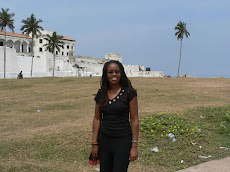
Last week, WorldTeach Volunteers were broken into about five groups for language instruction based on the region in which we’d be living and serving. Although I was a good student and participated in the four 90-minute required language sessions, I admit that I had and still have some ideological issues with learning Afrikaans. I just remember reading and learning about the apartheid-era non-violent student protests in Soweto (South Africa) objecting to Afrikaans as the main language of instruction in the schools and the mass killings of schoolchildren that followed. Not cool.
I understand that Afrikaans is widely spoken in Namibia and its former “protectorate” of South Africa; knowing the language will definitely help me navigate through the country. Afrikaans would have even helped me in cabs and stores in Windhoek. Still, I’d rather have been taught Damara, the native language of the people who were placed here (in Khorixas and much of the Kunene Region) during the resettlements by race/tribe of Blacks by Germans in the late 19th/early 20th century. Honestly, I doubt I’d have gotten very far with Damara in my short week; the language has four distinctive clicks that do not (yet) sound at all distinctive to me.
Afrikaans is a language that has Dutch, German, English, and a few African language influences. It has a lot of guttural sounds (like the ch in loch-ness, which is the “g”) causing me to fear unintentionally spitting on my conversation partner during practice. I also feel like I’m giving up some of my soul by learning and speaking Afrikaans but I’ll get over it. A bit dramatic, I know. I ended up purchasing two Afrikaans language books, including one with a pronunciation key to help me out. I also borrowed two Afrikaans instructional CDs owned by a classmate.
I’ve had at least one conversation with a local (native) Black professional who clearly prefers speaking English or Damara over Afrikaans. This was one of the individuals who felt comfortable admitting that she was surprised to see a Black American volunteer (that would be me). It will probably take a little while for me to earn the trust needed to gauge what others feel about language and other more personal or political matters. For me, the struggle continues. Race is a complicated issue, made even more so by unimaginable histories around the world. I don’t for a minute think to simplify it.
“Race Matters” will undoubtedly be a theme that will arise in my posts at various times in the year.
On a side note, yesterday President Barack Obama took his oath of office as the 44th chief executive of the United States of America. The historic event was acknowledged at a staff meeting I attended earlier in the day. NBC, the Nambia Broadcasting Company, interrupted their regular programming/lineup to air the event live. I watched the inauguration on CNN at a neighbor's house.
I understand that Afrikaans is widely spoken in Namibia and its former “protectorate” of South Africa; knowing the language will definitely help me navigate through the country. Afrikaans would have even helped me in cabs and stores in Windhoek. Still, I’d rather have been taught Damara, the native language of the people who were placed here (in Khorixas and much of the Kunene Region) during the resettlements by race/tribe of Blacks by Germans in the late 19th/early 20th century. Honestly, I doubt I’d have gotten very far with Damara in my short week; the language has four distinctive clicks that do not (yet) sound at all distinctive to me.
Afrikaans is a language that has Dutch, German, English, and a few African language influences. It has a lot of guttural sounds (like the ch in loch-ness, which is the “g”) causing me to fear unintentionally spitting on my conversation partner during practice. I also feel like I’m giving up some of my soul by learning and speaking Afrikaans but I’ll get over it. A bit dramatic, I know. I ended up purchasing two Afrikaans language books, including one with a pronunciation key to help me out. I also borrowed two Afrikaans instructional CDs owned by a classmate.
I’ve had at least one conversation with a local (native) Black professional who clearly prefers speaking English or Damara over Afrikaans. This was one of the individuals who felt comfortable admitting that she was surprised to see a Black American volunteer (that would be me). It will probably take a little while for me to earn the trust needed to gauge what others feel about language and other more personal or political matters. For me, the struggle continues. Race is a complicated issue, made even more so by unimaginable histories around the world. I don’t for a minute think to simplify it.
“Race Matters” will undoubtedly be a theme that will arise in my posts at various times in the year.
On a side note, yesterday President Barack Obama took his oath of office as the 44th chief executive of the United States of America. The historic event was acknowledged at a staff meeting I attended earlier in the day. NBC, the Nambia Broadcasting Company, interrupted their regular programming/lineup to air the event live. I watched the inauguration on CNN at a neighbor's house.






.jpg)
Mrs Burt and I just figured out how to add you to her favorite. This is good information. Talk to you later. Mom
ReplyDeleteHi Tammy et al,
ReplyDeleteI certainly"feel ya" re your feelings about learning the Africaans. How great it is to experience this trip through your observations. I look forward to your continued blogs.
God bless;
Luv, Elizabeth Burt
Why was the person surprised to see an Black American there????
ReplyDelete